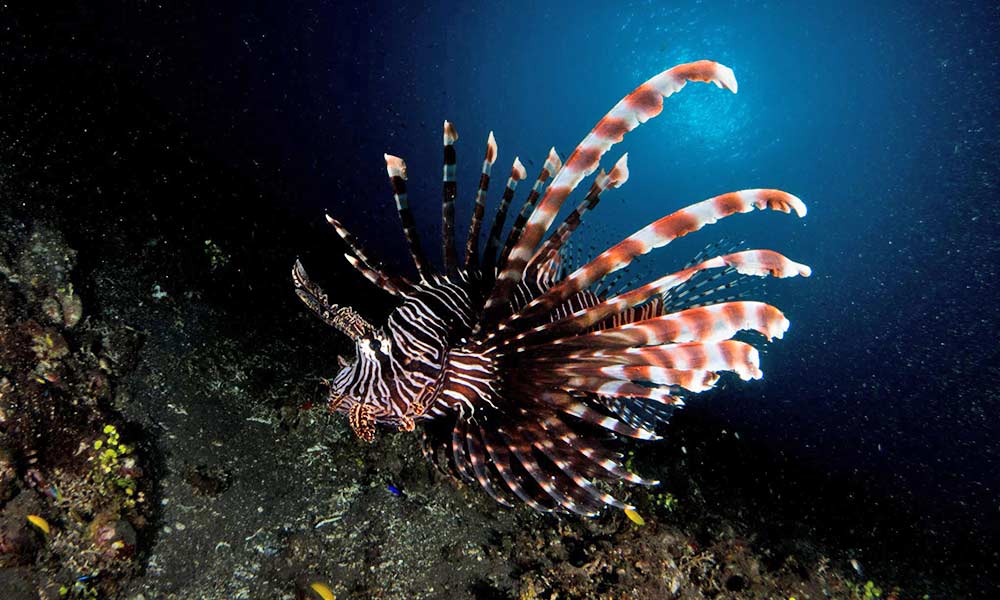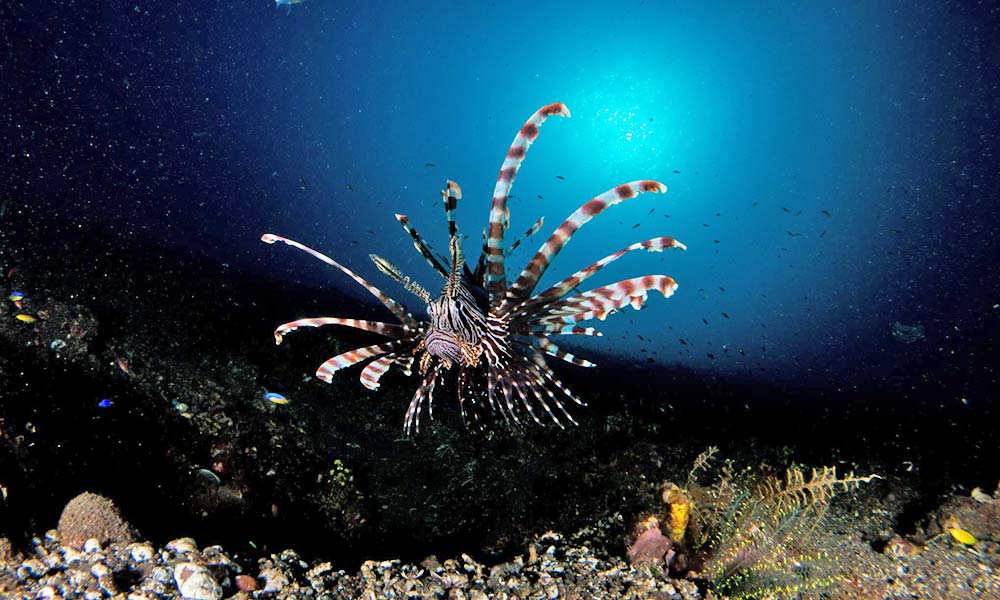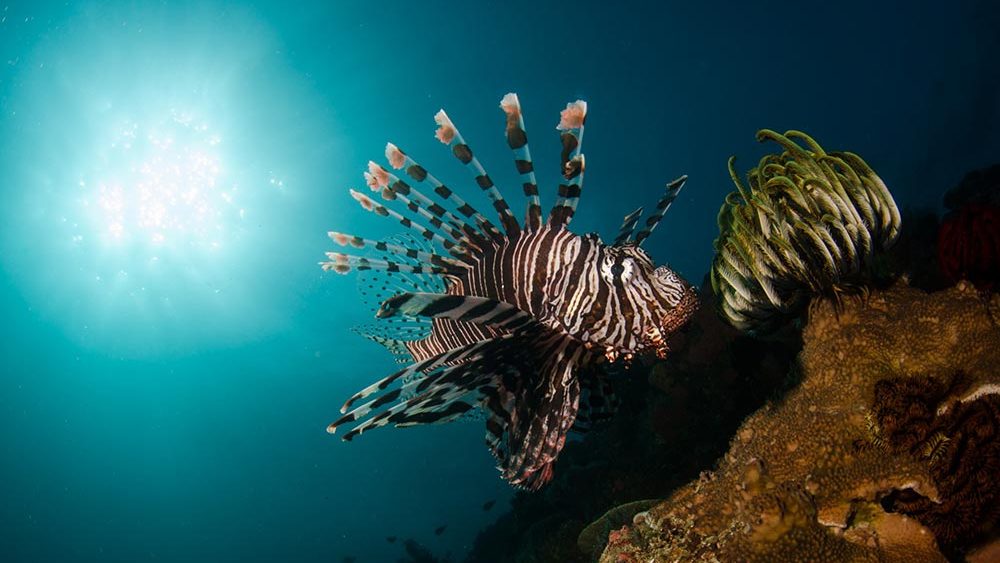Bali’s underwater world is rich and diverse, offering a wealth of peculiar and captivating marine species for divers to see. Among Bali’s fish species, the Red Lionfish (pterois volitans) is a favorite among divers due to its distinctive and eye-catching appearance.
Let’s explore some key aspects of this interesting fish and where to spot them when diving in Tulamben, Bali.
What do lionfish look like?
Lionfish are one of the most easily recognizable fish in Tulamben. Their bodies are patterned with distinctive red, brown, and white bands, giving them a striped appearance. Along with their prominent coloration, lionfish also possess long, fan-like fins and spines that extend from their bodies. These flowing fins resemble a lion’s mane, which is how the fish species got its name.
Are lionfish dangerous to divers?
Lionfish’s characteristic spines contain venom, meaning they can deliver a painful sting if touched. Lionfish are typically not aggressive towards humans. These venomous spines are primarily used for defense against predators. Lionfish tend to avoid confrontation and will only use their spines if they feel threatened.
While lionfish stings are not fatal to healthy humans, they can cause significant pain, swelling, and occasionally more severe reactions. As with all marine life, divers are advised to keep a safe distance from lionfish. Maintaining respectful interactions is the best way to avoid any accidental stings.

What do lionfish eat?
Lionfish are highly efficient predators due to their physical attributes and hunting strategies. Lionfish often hide among the corals, under ledges, and in crevices, waiting for small fish, shrimp, or crabs to come near. Their striped patterns provide excellent camouflage, allowing them to remain undetected by their prey until it’s too late.
Lionfish utilize their expansive fins to corner unsuspecting prey against reefs or rocks. When prey comes within range, lionfish quickly open their mouths to generate a suction force, drawing the prey in and swallowing it whole. This efficient method enables them to consume prey up to almost half their body length.
Are lionfish an invasive species?
Lionfish are native to Bali and the greater Indo-Pacific region. This broad area includes the Indian Ocean, the western and central Pacific Ocean, and seas around Southeast Asia, Australia, and Japan. This means that the lionfish that divers see here in Tulamben are a natural part of the marine ecosystem.
While lionfish aren’t a threat to Bali’s coral reefs, they are invasive in other parts of the world that are not their native waters. In the 1980s, Red Lionfish were first spotted in the Atlantic Ocean off the coast of Florida. No one knows exactly how lionfish were introduced to the Atlantic; it could have been either an accidental or intentional release. Since then, the lionfish has become an invasive species in the Atlantic, Caribbean, and Gulf of Mexico. Their high reproductive rate and lack of natural predators in these non-native ecosystems have led their population to rapidly increase, leading to significant ecological imbalances and threatening local fish populations.

Where can you see lionfish when diving in Tulamben?
Lionfish are a common sighting in the diving destination of Tulamben, Bali. Here, divers often find lionfish tucked away in crevices or hovering near the reef. Because lionfish are primarily nocturnal hunters they are most active at night. However, they can also be seen during the day, resting or slowly moving around the reef.
The best place in Tulamben to spot lionfish is the Drop Off dive site. The steep wall provides an ideal environment for lionfish to lie in wait for their prey. While lionfish are most frequently spotted at the Drop Off, they can also be seen at many of the other dive sites in the Tualmben area.
Dive in Tulamben
Lionfish are just one of the hundreds of fish species that you can see when diving in Tulamben. The dive sites here are known for their rich marine biodiversity, making it one of the best places to dive in Bali.
If you’re interested in diving in Bali, please send us a message to book your Tulamben dive. Our dive center is conveniently located in the center of Tulamben and our local guides are experts at spotting marine life.
Select an option below to learn more about our most popular scuba diving trips and courses:






Comments are closed.